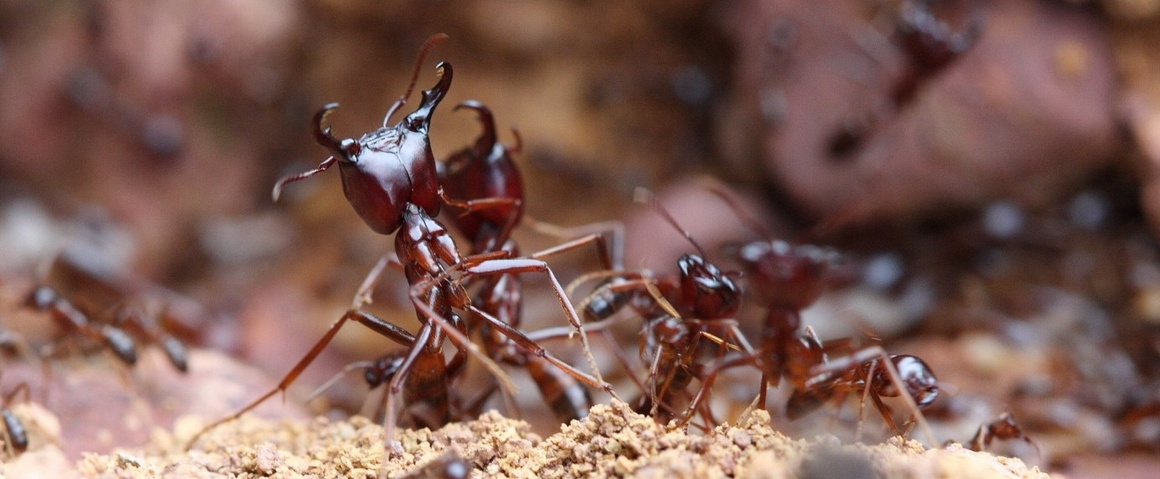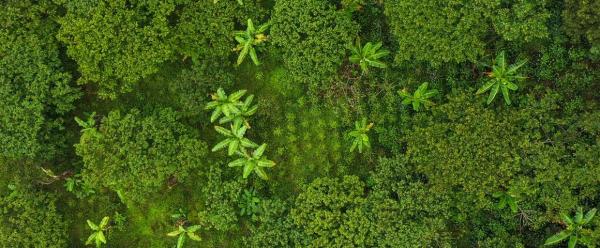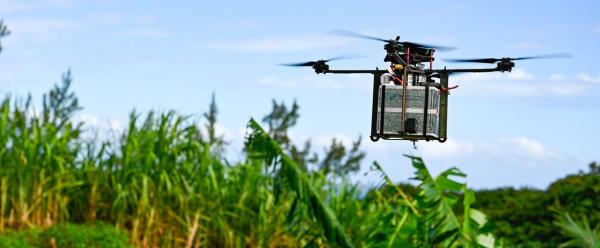Results & impact 10 October 2025
- Home
- Press area
- Press releases
- Ants to sample viruses in the forest
Virus hunters are getting antsy

Army ants © Pierre Becquart, IRD
The originality of this research, published in the Peer Community Journal, stems from the idea of using army ants as a means of sampling plant and animal viruses circulating in a tropical forest ecosystem. Colonies of army ants made up of hundreds of thousands of individuals carry out spectacular raids, hunting a very wide range of live prey, but also devouring animal carcasses or feeding directly on plants.
This viral metagenomics study was conducted by teams from CIRAD, IRD and INRAE, in collaboration with partners from South Africa, the US, Congo and Gabon. Led by Philippe Roumagnac and Eric Leroy, this research shows that army ants can accumulate a great diversity of bacterial, plant, invertebrate and vertebrate viral sequences. “This approach has enabled us to detect in ants the presence of 157 different viral genera belonging to 56 viral families, which is exceptional in terms of viral diversity”, says Philippe Roumagnac, a virologist at CIRAD.
Towards early surveillance of viral zoonoses in tropical forest environments
This pioneering research represents a first step that could pave the way for large-scale studies on the virome – in other words the collection of viruses – of all tropical forest ecosystems. Army ants could thus become valuable allies in research on disease emergence and in the early surveillance of zoonotic viruses that can pass from animals to humans and cause epidemics.
Reference
Matthieu Fritz, Bérénice Reggiardo, Denis Filloux, Lisa Claude, Emmanuel Fernandez, Frédéric Mahé, Simona Kraberger, Joy M. Custer, Pierre Becquart, Telstar Ndong Mebaley, Linda Bohou Kombila, Léadisaelle H. Lenguiya, Larson Boundenga, Illich M. Mombo, Gael D. Maganga, Fabien R. Niama, Jean-Sylvain Koumba, Mylène Ogliastro, Michel Yvon, Darren P. Martin, Stéphane Blanc, Arvind Varsani, Eric Leroy and Philippe Roumagnac. 2023. African army ants at the forefront of virome surveillance in a remote tropical forest. Peer Community Journal



























